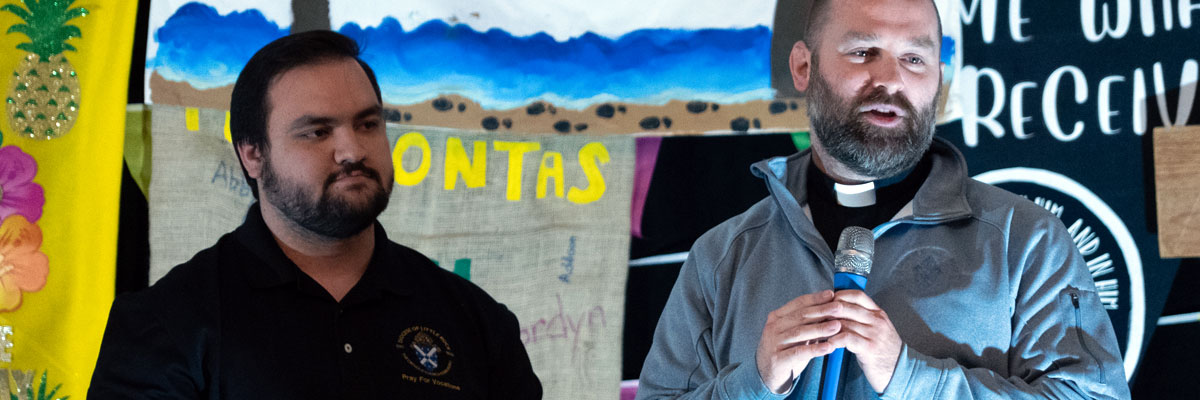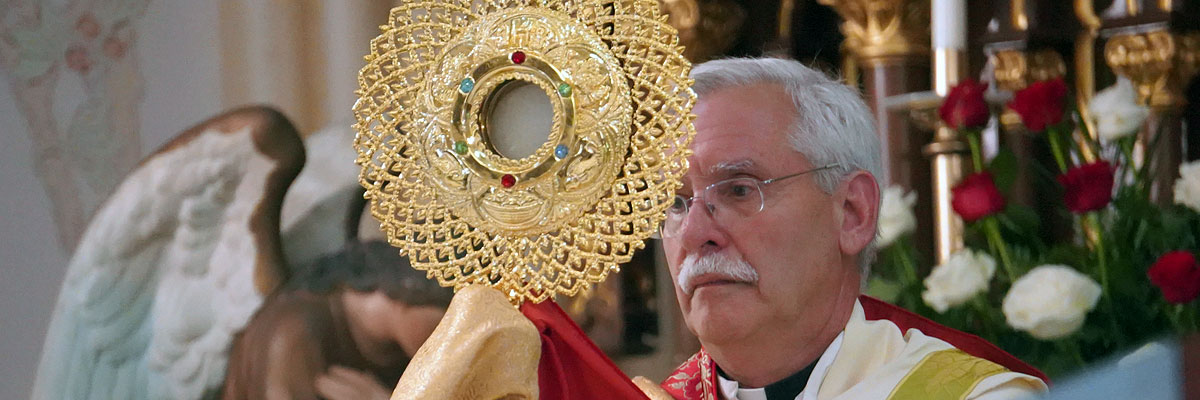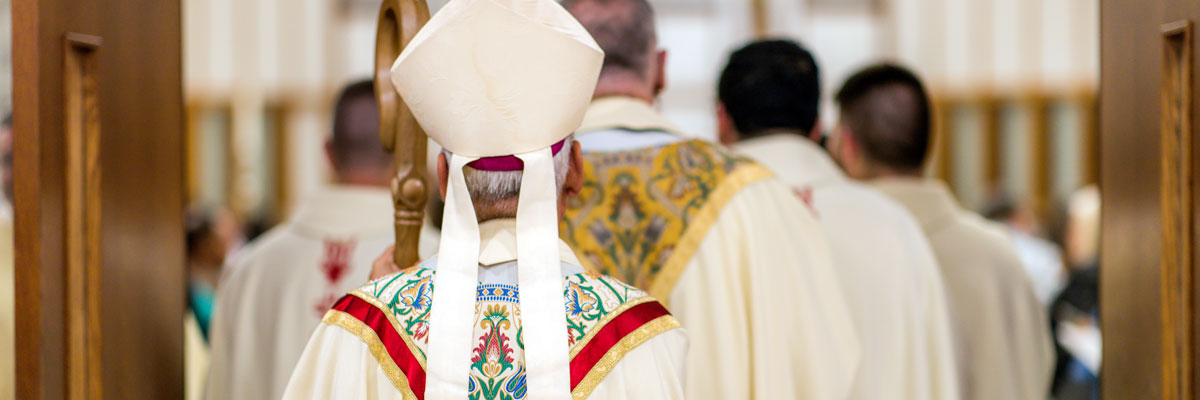Official Website of the
Catholic Diocese of Little Rock
14th Sunday in Ordinary Time, Year C
Published: July 3, 2016
Bishop Anthony B. Taylor preached the following homily on Sunday, July 3, 2016.

Bishop Taylor
In today's Gospel, Jesus sends 72 disciples on a hike. They will be visiting a lot of towns and will be camping along the way. Unlike us hikers today who plan carefully in order not to forget something we need, Jesus tells them to leave behind their money, their backpack and their sandals — God will provide everything they need.
Unlike us who enjoy the camaraderie of other hikers, Jesus says: "Greet no one along the way." Their hike is not for recreation, it's to proclaim a message, a message that will not always be well received. This is the first time in the Gospels that Jesus sends his disciples out to proclaim the Good News that "the kingdom of God is at hand."
The first thing they were to say upon entering someone's home was "Peace to this household." And yet they were often treated with hostility. Why was this? And for that matter, why does the Church continue to face hostility from our secular, materialistic society today?
Regardless of what they say, most people's actions show that they expect to find security in the things of this world and happiness in living however we want. Yet this willfulness only leaves us feeling even more insecure than before, because the conscience that God planted in us will not allow us to find true peace so long as we persist in living what we know deep in our hearts to be a lie.
One reason is that Jesus calls us and our nation to live according to a higher law that rejects what those who live like pagans today are doing. The Gospel of Jesus Christ is a Gospel of Life rooted in the truths of divine revelation and natural law, and is the opposite of the amoral, live-and-let-live ethos of many in today's world.
Regardless of what they say, most people's actions show that they expect to find security in the things of this world and happiness in living however we want. Yet this willfulness only leaves us feeling even more insecure than before, because the conscience that God planted in us will not allow us to find true peace so long as we persist in living what we know deep in our hearts to be a lie.
This is why today's pagans seek validation from us by imposing on us laws intended to make immoral acts appear respectable, for instance: same-sex marriage and characterizing our opposition to this redefinition of marriage as "hate speech" when we simply proclaim the truth about marriage that has been held by every culture throughout human history: It is the lifelong union of one man and one woman open to the transmission of new life.
Another example, the issue of so-called transgender persons. Some characterize as an injustice our insistence on the truth that one's biological gender is given to us permanently by God and not subject to change, no matter the surgeries someone undergoes or how much a person wishes they were the opposite gender.
Is it truthful to call someone "she" when we know that the person is really a "he" wearing a dress? From today's Gospel we learn that faithfulness to Jesus will require us to face the hostility of those who would rather live a lie than accept the truth. And this applies not only to the truths of sexual morality but also to the social teaching of the Church, be it on immigration, economic justice or human rights, and medical moral truths — abortion, euthanasia, you name it and you'll face opposition.
Another reason people reject us is our message that God is the master of our destiny and our possessions — not us: "He has the whole world in his hands." Meaning that while we can and should plan for the future, none of us has any real control over that future — it's all ultimately in his hands.
And one day we will have to give an accounting for what we have done with the many gifts God has given us. Have we used them to help others? In today's Gospel, Jesus sends his disciples out with no money bag, no sack and no sandals to teach them that we can trust God to provide us a means to meet our needs.
We also learn that we are to be the means by which the needs of others are met — after all, they'll be depending on the kindness of others.
And finally, we learn what we should do when we face disappointment and rejection. We should simply shake the dust off our feet and move on. Dust is a powerful thing. It seems small but can accumulate. Those ancient cities that archeologists excavate are covered with nothing but dust that has accumulated over time.
Jesus says that adversity can have that same effect on us. So we should simply shake the dust off our feet, shake off the disappointment and rejection and move on.









